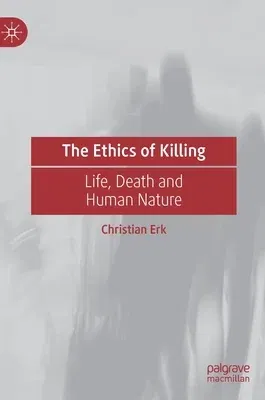Christian Erk
(Author)The Ethics of Killing: Life, Death and Human Nature (2022)Hardcover - 2022, 2 September 2022

Qty
1
Turbo
Ships in 2 - 3 days
Only 1 left
Free Delivery
Cash on Delivery
15 Days
Free Returns
Secure Checkout

Print Length
335 pages
Language
English
Publisher
Palgrave MacMillan
Date Published
2 Sep 2022
ISBN-10
3031071824
ISBN-13
9783031071829
Description
Product Details
Author:
Book Edition:
2022
Book Format:
Hardcover
Country of Origin:
NL
Date Published:
2 September 2022
Dimensions:
21.01 x
14.81 x
2.06 cm
ISBN-10:
3031071824
ISBN-13:
9783031071829
Language:
English
Location:
Cham
Pages:
335
Publisher:
Weight:
571.53 gm